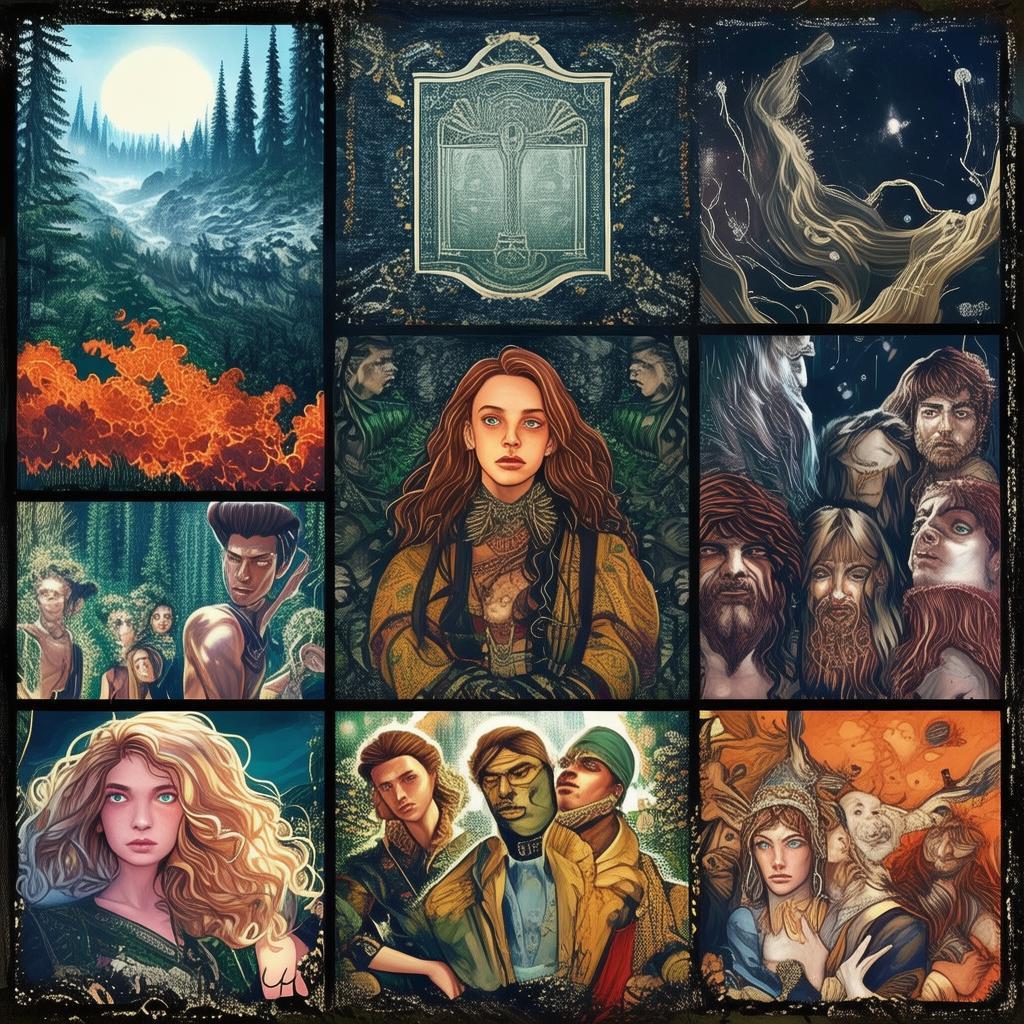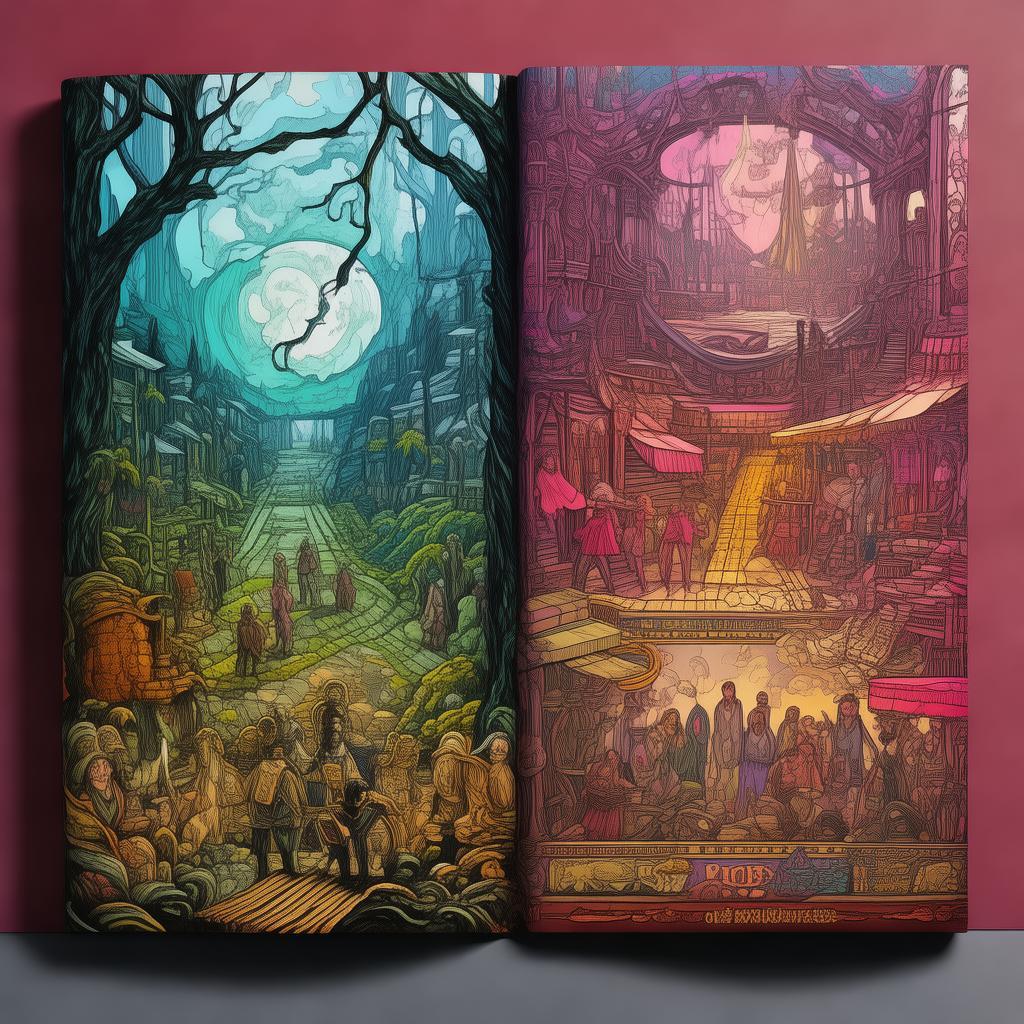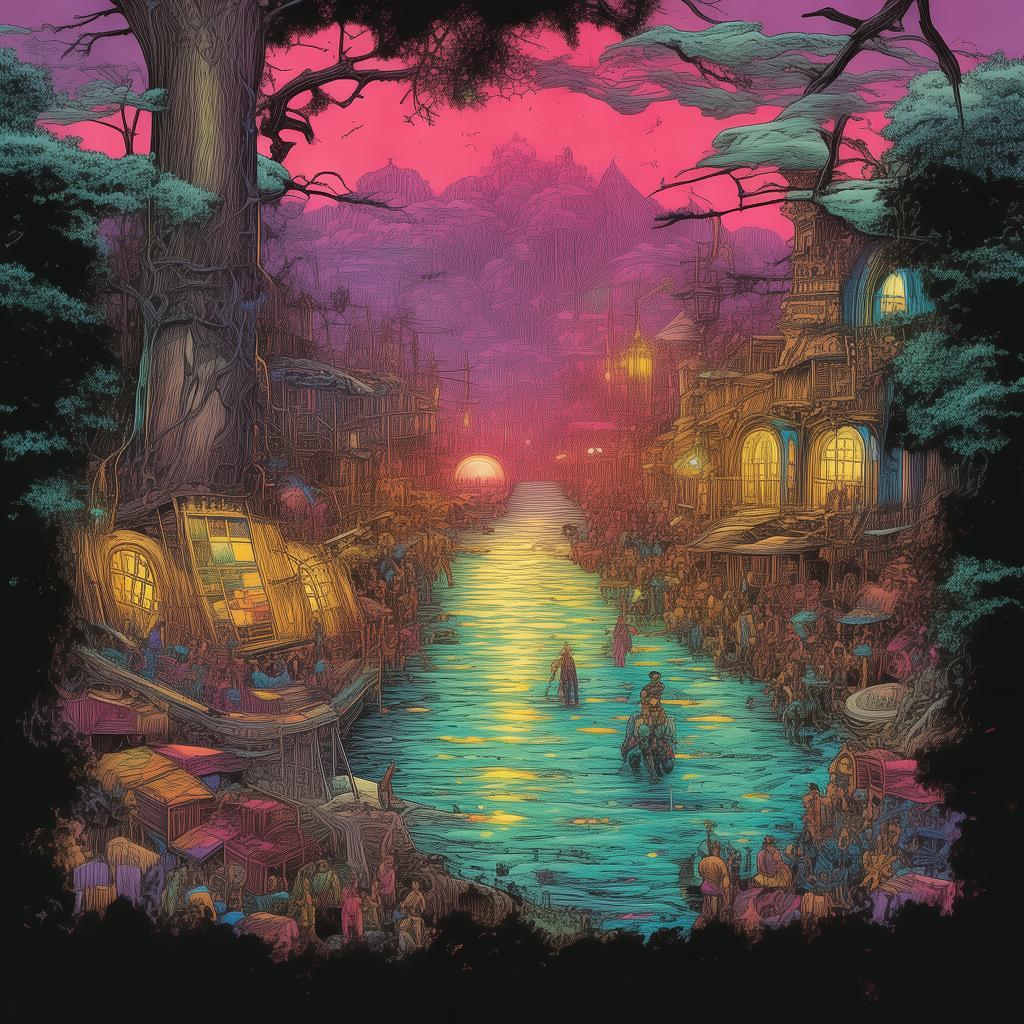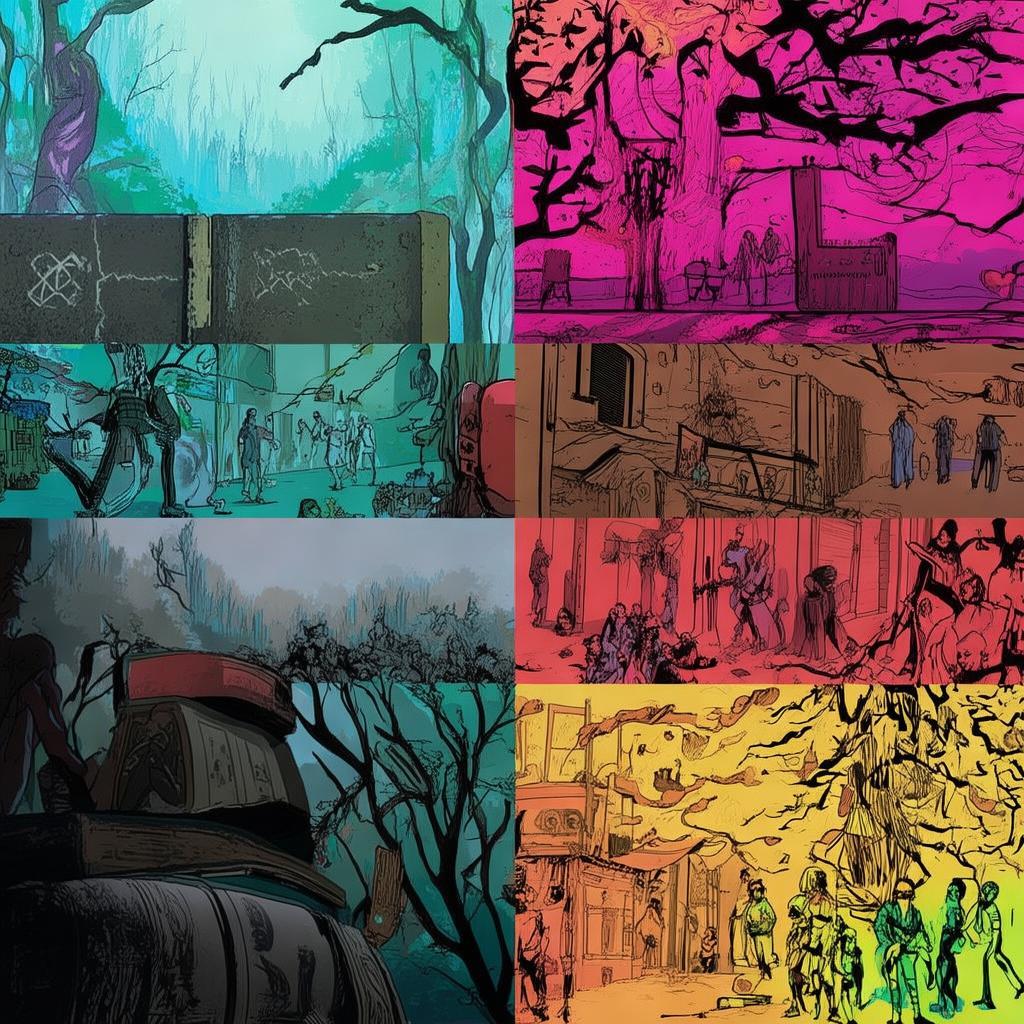Unraveling the Great Teacher's Dilemma: The Lament of the Lost Lyric
In the bustling city of Luoyang, where the aroma of roasted chestnuts mingled with the hum of merchants, a young scholar named Hua Tuo wandered through the markets. His mind was a tapestry of questions and theories, a byproduct of his rigorous study under the tutelage of Master Confucius. It was during one of their sessions that the Great Teacher had presented a conundrum, a moral dilemma that seemed to resonate with the very essence of Hua Tuo's being.
The conundrum was simple yet profound: A king had offered his son a chance to become the greatest general in the land, but to do so, the son would have to betray his loyal friend. The question was, should the son accept the offer, or should he honor his friendship and risk his own destiny?
Hua Tuo pondered the question for days, his thoughts consumed by the moral quandary. He sought solace in the ancient texts, searching for wisdom that might illuminate his path. It was during this period of contemplation that he stumbled upon a dusty scroll in the attic of his mentor's home. The scroll contained a single, mysterious lyric, its meaning shrouded in obscurity.
The lyric read:
"Whispers in the wind, the truth we seek,
Betrayal's shadow, loyalty's gleek.
In ancient times, a tale of might,
Where honor's path diverges from right."
Intrigued and puzzled, Hua Tuo knew he had to uncover the story behind this enigmatic lyric. He set out on a journey that would take him from the bustling streets of Luoyang to the remote mountains of Shandong. Along the way, he encountered various characters, each with their own tales of loyalty and betrayal.
He met a hermit who spoke of a kingdom long fallen, where a great general named Feng Yi had faced a similar choice. Feng Yi had chosen loyalty over power, sacrificing his own ambitions to save his friend. The hermit told Hua Tuo that Feng Yi's name was etched in the annals of history as a symbol of unwavering honor.
But as Hua Tuo delved deeper into the story, he discovered that Feng Yi's actions had not been without consequences. His friend, though saved, had been left with a deep-seated bitterness that would forever change their lives. This revelation left Hua Tuo grappling with the moral complexities of his own conundrum.
In the mountains, Hua Tuo met a traveling poet, whose songs echoed the lyrics he had found. The poet, wise and aged, listened to Hua Tuo's tale and recited a poem that seemed to encapsulate the essence of his journey:
"Beneath the moon's silver gaze, we seek the light,
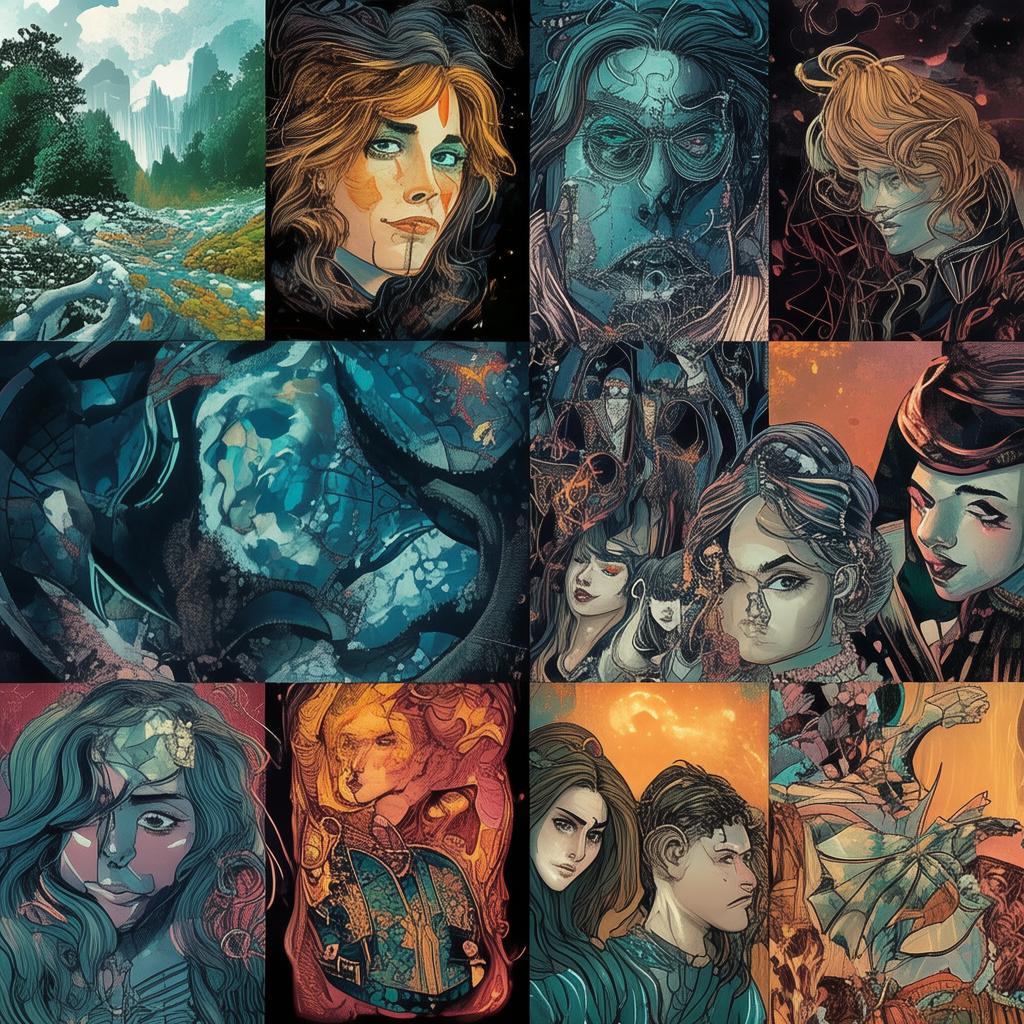
In shadow's embrace, the truth we might.
Loyalty and power, a dance of fate,
In ancient times, a lesson we must hate."
The poet's words resonated with Hua Tuo, and he realized that the lyric he had found was not merely a mystery to be solved, but a lesson to be learned. The story of Feng Yi and his friend was a cautionary tale about the thin line between honor and self-sacrifice.
As Hua Tuo returned to Luoyang, he found himself no closer to an answer. The conundrum of the king and his son remained unresolved. However, he now understood that the true lesson lay not in the choice between loyalty and power, but in the understanding that every action has its consequences.
Hua Tuo approached Master Confucius with newfound clarity. "Teacher," he said, "the lyric taught me that the truest form of wisdom is in recognizing the complexities of our decisions and accepting the consequences, regardless of the outcome."
Confucius nodded, a smile of approval gracing his face. "You have learned well, Hua Tuo. Wisdom is not in choosing the easy path, but in facing the difficult one with courage and integrity."
And so, Hua Tuo's journey had come to an end, but the lesson of the lyric had forever changed him. He carried the moral weight of his discovery, knowing that in the grand tapestry of life, the threads of loyalty and betrayal are woven together in a complex and beautiful pattern.
✨ Original Statement ✨
All articles published on this website (including but not limited to text, images, videos, and other content) are original or authorized for reposting and are protected by relevant laws. Without the explicit written permission of this website, no individual or organization may copy, modify, repost, or use the content for commercial purposes.
If you need to quote or cooperate, please contact this site for authorization. We reserve the right to pursue legal responsibility for any unauthorized use.
Hereby declared.




